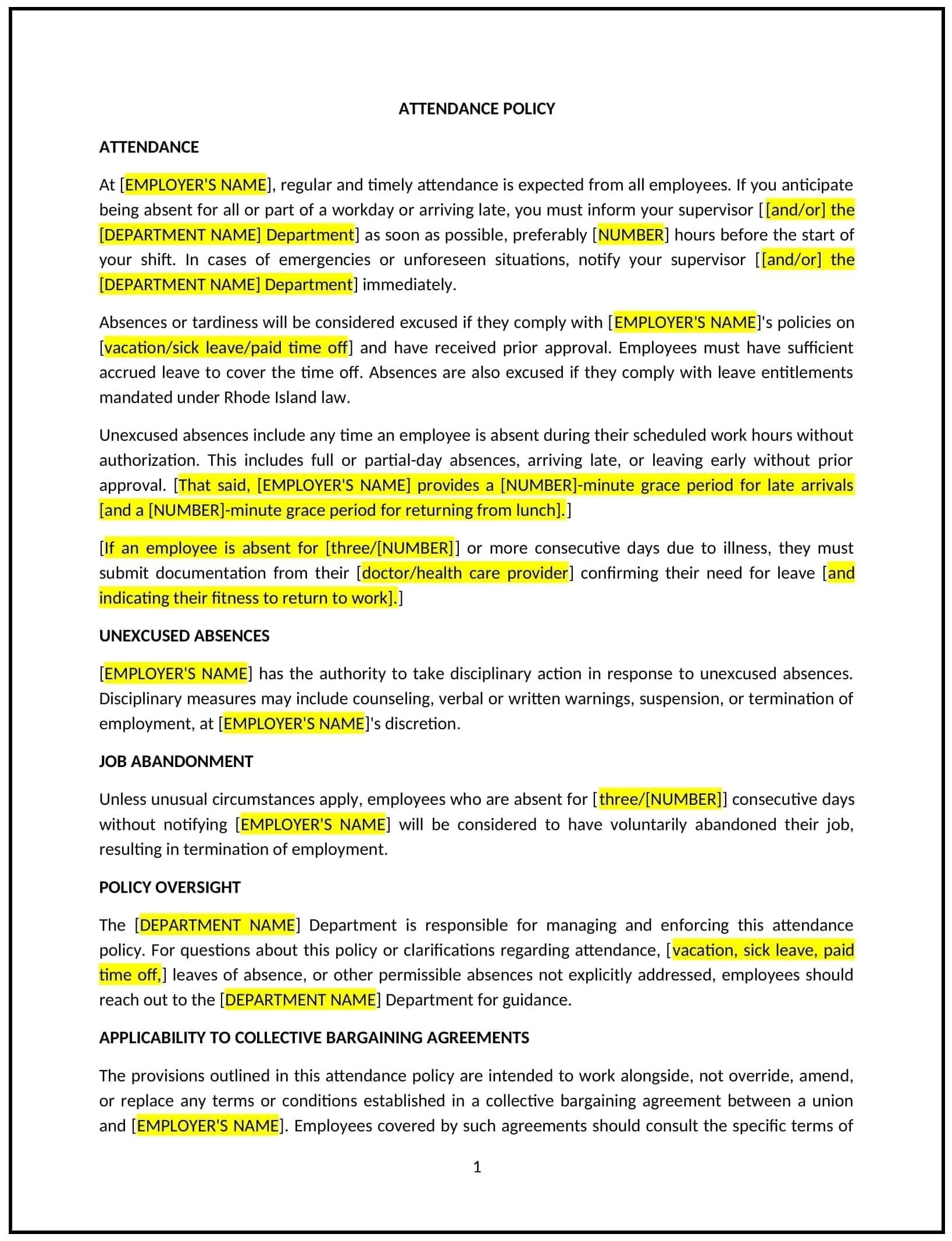Got contracts to review? While you're here for policies, let Cobrief make contract review effortless—start your free review now.

Customize this template for free
Attendance policy (Rhode Island)
This attendance policy is designed to help Rhode Island businesses establish guidelines for managing employee attendance, punctuality, and absenteeism. It outlines procedures for reporting absences, addressing excessive absenteeism, and maintaining productivity in the workplace.
By adopting this policy, businesses can ensure consistent attendance, reduce disruptions, and align with general best practices for workforce management.
How to use this attendance policy (Rhode Island)
- Define attendance expectations: Explain what constitutes acceptable attendance, including punctuality and notification procedures for absences.
- Establish reporting procedures: Provide steps for employees to report absences, including required notice and documentation for sick leave or other time off.
- Address excessive absenteeism: Outline how the business will address excessive or unexcused absences, such as progressive discipline or performance improvement plans.
- Set consequences: Specify the consequences for violating the policy, such as warnings, suspension, or termination.
- Train managers: Educate supervisors on handling attendance issues fairly and consistently.
- Review and update: Assess the policy annually to ensure it aligns with evolving business needs and workforce standards.
Benefits of using this attendance policy (Rhode Island)
This policy offers several advantages for Rhode Island businesses:
- Ensures consistent attendance: Provides clear guidelines for maintaining productivity and minimizing disruptions.
- Reduces absenteeism: Encourages employees to adhere to attendance expectations and report absences appropriately.
- Aligns with best practices: Offers a structured approach to managing attendance and absenteeism.
- Builds trust: Demonstrates a commitment to fairness and consistency in attendance management.
- Enhances productivity: Creates a work environment where employees are present and engaged.
Tips for using this attendance policy (Rhode Island)
- Communicate the policy: Share the policy with employees and include it in the employee handbook.
- Provide training: Educate managers on handling attendance issues fairly and consistently.
- Monitor adherence: Regularly review attendance records to ensure compliance with the policy.
- Address issues promptly: Take corrective action if attendance issues are identified or if the policy is violated.
- Update regularly: Assess the policy annually to ensure it aligns with evolving business needs and workforce standards.